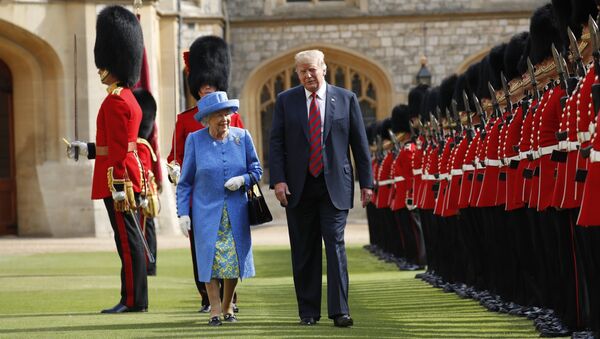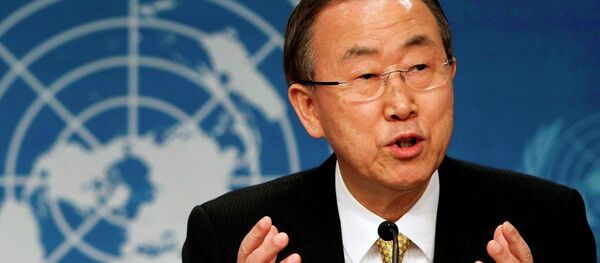As per the conventional pomp and ceremony, Mr Trump will have the red carpet unfurled at his feet when he arrives in London, where he will, among other things, meet and dine with the Queen.
However, it is yet to be seen whether the US president will address the UK parliament. British critics of Trump, who often to deride him as a ‘bigot' and ‘racist' argue that he should not be given the privilege. On the other hand, there are those, such as the UK's Foreign Secretary, Jeremy Hunt, who argue that Trump should be able to deliver a speech to British MPs.
The President of The United States of America, President Donald J. Trump, accompanied by Mrs Melania Trump, has accepted an invitation from Her Majesty The Queen to pay a State Visit to the UK. pic.twitter.com/e3ANW9bUKa
— The Royal Family (@RoyalFamily) 23 April 2019
"I think it is very important when you have a state visit by our closest and most important ally that we think about the office as much as the person. I hope we make the best possible welcome for President Trump," Mr Hunt has been widely quoted as saying.
Defence Minister Tobias Ellwood says that if Donald Trump requests to address Parliament then he should "absolutely" be allowed to.
— Sky News (@SkyNews) 23 April 2019
Donald Trump will make a three-day state visit to the UK from 3 June https://t.co/0JdYRT1jA0 pic.twitter.com/DMt3g0EXm3
Yet, the inconvenient truth for Mr Trump's most vociferous critics is that arguably much more controversial world leaders have been bestowed with a state visit in the past.
Here are just five of the most controversial.
1. Robert Mugabe
Zimbabwe's former leader was given a state visit back in May 1994. In what was largely seen as a post-empire effort by the British establishment to maintain its influence and prestige on the African continent, Mr Mugabe was even granted a knighthood by the Queen. Before that, Mugabe was known for his anti-British tirades, often slamming London as a failed imperialist power and regularly laying the blame for Zimbabwe's problems at Britain's feet. Yet, Mr Mugabe's 1994 romance with the UK was short lived, and his knighthood was rescinded in 2008 when news bubbled to the surface that he'd overseen a campaign of allegedly expunging his political rivals by force. However, it would have been difficult for the British monarchy and government of 1994 to claim that they were not aware of Mugabe's less agreeable side. The Queen reportedly said to Mr Mugabe during his visit that, "through your personal commitment to economic reform… your economy seems to be well on the way to recovery and sustainable growth."
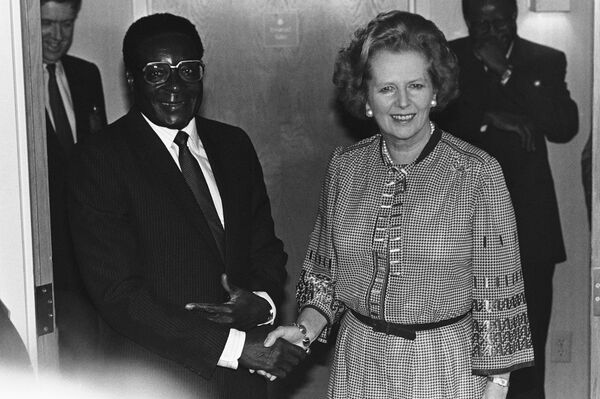
2. Emperor Hirohito
3. George W. Bush
It shouldn't take too much imagination to understand why the the 43rd President of the US' visit during November 2003 was so controversial: in March of that year he presided over the US invasion of Iraq. Protesters took to the streets of London to make their disagreements with Bush's visit clear, which included the pulling down of an effigy of Mr Bush in Trafalgar Square, mimicking scenes of Saddam Hussein's statue being brought down in central Baghdad just a few months earlier. Reports at the time said that millions had to be be spent bolstering security during Bush's visit.
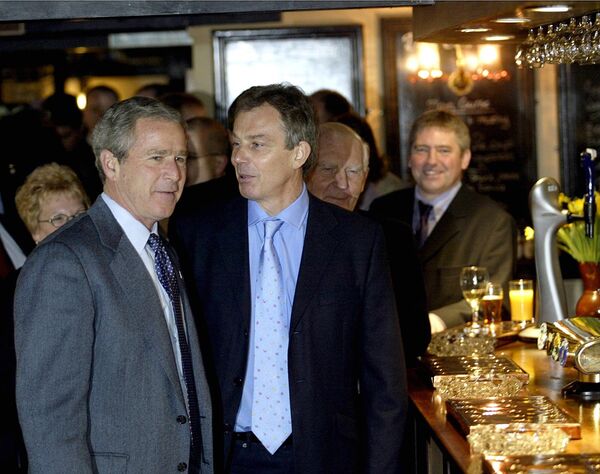
4. Hosni Mubarak
The former Egyptian strongman who was ousted during the Arab Spring of 2011 was invited by the British monarchy for a state visit in 1991. British human rights groups at the time decried Queen Elizabeth’s invitation to a leader accused of imprisoning his political opponents and presiding over a government riddled with top-down corruption. While Mr Mubarak was lavished with all the pomp and ceremony that comes with a state visit, including tour of Buckingham Palace with the Queen, a great deal of the occasion was reportedly consumed by negotiations between Mubarak and then-Prime Minister John Major over the Israeli-Palestinian peace process.
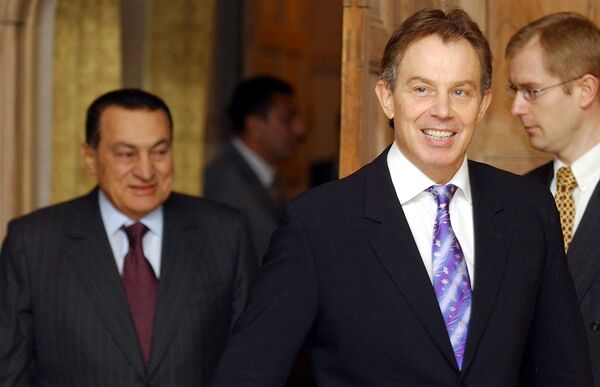
5. The Shah of Iran
READ MORE: Iranian Revolution at 40: Britain's Secret Support for Khomeini Revealed
While it seems difficult to imagine today considering the decaying state of relations between Iran and the West, there was a time before the 1979 Islamic Revolution when Tehran was the best friend of London in the Middle East. That relationship culminated in a 1959 state visit by the Shah of Iran, Mohammad Reza Pahlavi. However, despite his talk of secularism and liberty, the Western-backed Shah was later revealed to be a rather controversial figure who had engaged in the mass incarceration and torture of dissidents. Many ordinary Iranians later became so exhausted with the endemic corruption that the Shah brought to the Iranian leadership that they sided with leader-in-exile Ayatollah Ruhollah Khomeini to remove Mr Pahlavi from power in a nationwide revolution. Despite his dubious character, Queen Elizabeth was more than happy to ride down the Mall from Buckingham Palace with the Shah in a horse-drawn carriage.

